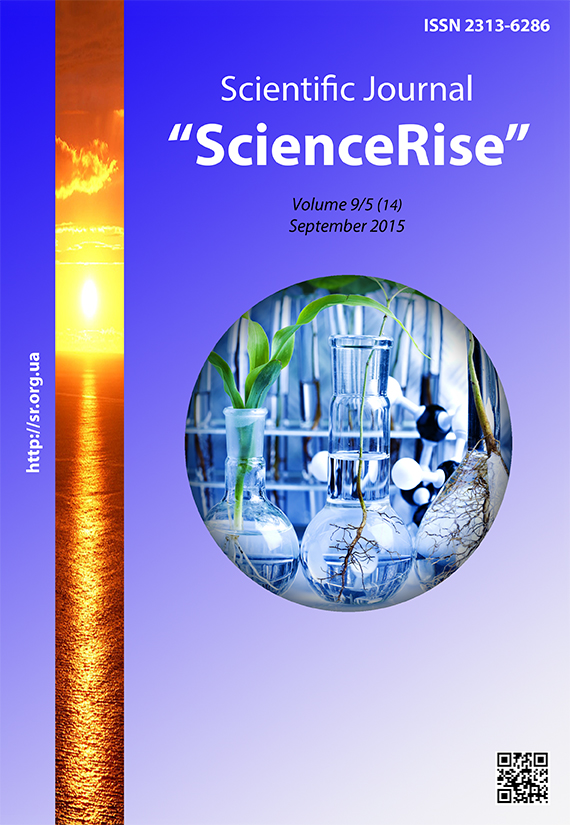Лінгвістичні засади дослідження комунікативно-стратегічної компетентності майбутніх учителів початкових класів
DOI :
https://doi.org/10.15587/2313-8416.2015.50607Mots-clés :
майбутній учитель початкових класів, комунікативно-стратегічна компетентність, комунікативна стратегія, комунікативна тактикаRésumé
У статті розкрито значення лінгвістичних досліджень для формування комунікативно-стратегічної компетентності майбутніх учителів початкових класів. Здійснено порівняння змісту термінів «комунікація» і «спілкування». З’ясовано сутність основних комунікативних понять. Запропоновано авторське трактування комунікативної стратегії, комунікативної тактики, розкрито їх структуру. Визначено основні принципи навчання студентів стратегічного планування комунікативної взаємодії
Références
Andreeva, G. M. (1980). Social'naja psihologija. Moscow: Izdatelstvo Moskovs'kogo universiteta, 416.
Arutjunova, N. D. (1990). Diskurs. Lingvisticheskij jenciklopedicheskij slovar'. Moscow: Sov. jenciklopedija, 685.
Bahtin, M. M. (1986). Problema rechevyhzhanrov. Jestetika slovesnogo tvorchestva. Moscow: «Iskusstvo», 240–296.
Bacevych, F. S. (2004). Osnovy komunikatyvnoi' lingvistyky. Kyiv: Akademija, 344.
Bacevych, F. S. (2007). Slovnyk terminiv mizhkul'turnoi' komunikacii'. Kyiv: Dovira, 205.
Kan-Kalik, V. O. (1985). Pedagogicheskoe obshhenie kak predmet teoreticheskogo i prikladnogo issledovanija. Voprosy psihologii, 4, 9–16.
Ryzhov, V. V. (1995). Psihologicheskie osnovy kommunikativnoj pіdgotovki. Novosibirsk, 35.
Kellermann, K. (1992). Communication: Inherently strategic and primarlyautomatic. Communication Monographs, 59 (3), 288–300. doi: 10.1080/03637759209376270
Issers, O. S. (1999). Kommunikativnye strategii i taktiki russkoj rechi. Omsk, 288.
Karasik V. I. (2000). Jetnokul'turnye tipy institucional'nogo diskursa. Jetnokul'turnaja specifika rechevoj dejatel'nosti: Sb. obzorov. Moscow: INION RAN, 37–64.
Skalkin, V. L. (1981). Osnovy obuchenija ustnoj inojazychnoj rechi. Moscow: Russkij jazyk, 248.
Ezhova, T. V. (2007). Pedagogicheskij diskurs i egoproektirovanie. Internet-zhurnal «Jejdos». Available at: http://www.eidos.ru/journal/2007/0930-5.htm
Gabidullina, A. R. (2009). Navchal'no-pedagogichnyj dyskurs: kategorial'na struktura ta zhanrova. Kyiv, 31.
Tarasova, I. P. (1992). Rechevoe obshhenie, tolkuemoe s jumorom, no vser'joz. Moscow: Vysshaja shkola, 174.
Rubin, J. (1981). Study of Cognitive Processes in Second Language Learning. Applied Linguistics, 2 (2), 117–131. doi: 10.1093/applin/2.2.117
Wenden, A. L. (1991). Learner strategies for learner autonomy. London: Prentice-Hall International, 299.
Nikolajeva, S. Ju. (2003). Zagal'nojevropejs'ki Rekomendacii' z movnoi' osvity: vyvchennja, vykladannja, ocinjuvannja. Kyiv: Lenvit, 273.
Téléchargements
Publié-e
Numéro
Rubrique
Licence
(c) Tous droits réservés Марія Петрівна Оліяр 2015

Cette œuvre est sous licence Creative Commons Attribution 4.0 International.
Our journal abides by the Creative Commons CC BY copyright rights and permissions for open access journals.
Authors, who are published in this journal, agree to the following conditions:
1. The authors reserve the right to authorship of the work and pass the first publication right of this work to the journal under the terms of a Creative Commons CC BY, which allows others to freely distribute the published research with the obligatory reference to the authors of the original work and the first publication of the work in this journal.
2. The authors have the right to conclude separate supplement agreements that relate to non-exclusive work distribution in the form in which it has been published by the journal (for example, to upload the work to the online storage of the journal or publish it as part of a monograph), provided that the reference to the first publication of the work in this journal is included.

